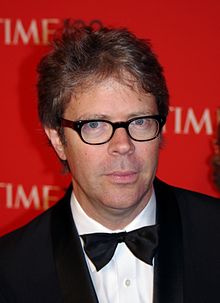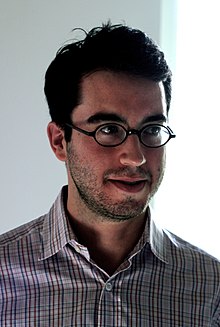
First Line: "The entire ride would take eleven minutes."
Last Line: "Clara opened her satchel and lifted the yellow bird onto her lap, and I heard it shrieking the whole way down the mountain."
Here are my thoughts that I posted to The Mookse and the Gripes about this story that appeared in the June 7,2015 issue of The New Yorker.
"I finished The Prospectors. And I am glad I was forewarned. It was so promising at the beginning... beautiful prose and interesting characters. I loved these lines "pouring bright malice into the fruit punch in the form of a mentally deranging Portuguese run... Together, the Finisterre women smoothed arguments and linens." And the description of the sweater - "a covering so thin could erase her bruises"... Ahhh... the visuals were great.
And then it happened - THE TURN. It was as if Russell started a wonderful story, paused to get herself a drink and then was distracted by something on Netflix. It was as if finished by a completely different author. Like reading a manuscript newly discovered by a classic author and finished by a high school student for a writing assignment.
This is my first reading of Karen Russell. I saw an interview with her and Junot Diaz (through the New Yorker on YouTube) and I found her quiet (compared to Junot Diaz - who isn't?) and reserved. It seemed that she likes the magical, the superstitious, the slightly left of reality. So maybe the idea isn't what threw me - I mean, spoken aloud it is an interesting plot line. Two young Depression-era women stumble upon a lodge filled with dead CCC workers, and instead of stealing from the living, the dead almost take their lives... It was the presentation and the sudden shift from promising to broken promise that left me cheated.
The ending was also sudden and without a sense of closure. I know not all stories have closure, per se, but I put it down and said, "and...?" It's tenor did not match the beginning or the middle. Maybe it was time for another drink and another Netflix show... who knows...
So we request more variety of TNY and less "glamorous" writers? If so, I agree. But I still take each story as it comes. For me, it isn't about the writer or even the magazine. It's about a story."
photo from http://upload.wikimedia.org/wikipedia/commons/thumb/4/4e/Karen_Russell_6590.JPG/300px-Karen_Russell_6590.JPG





